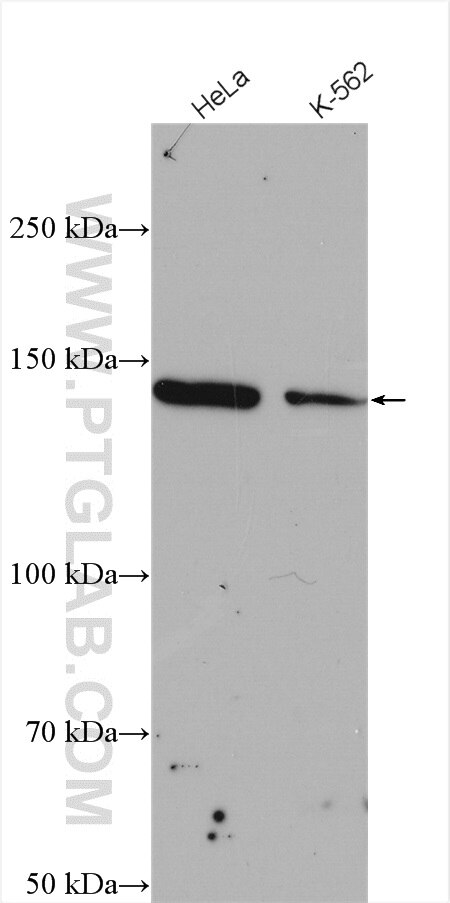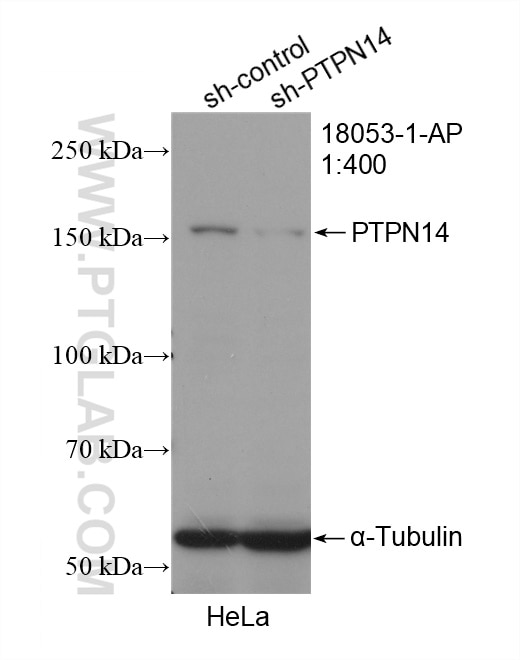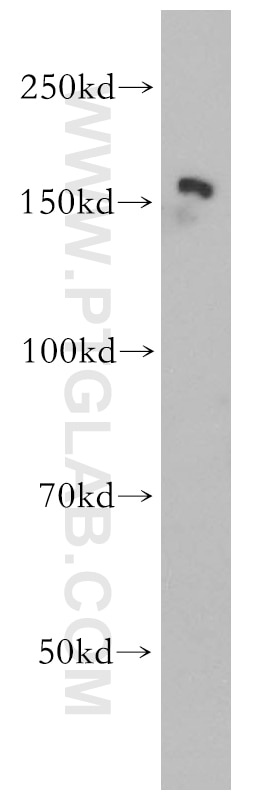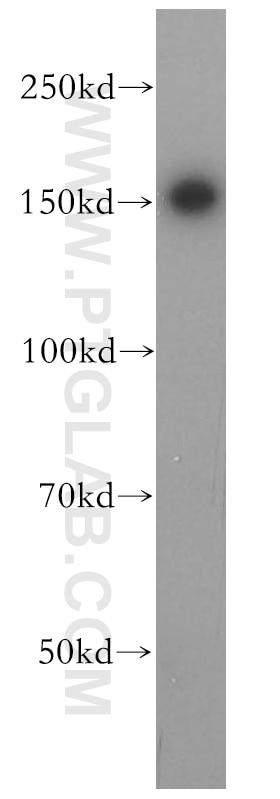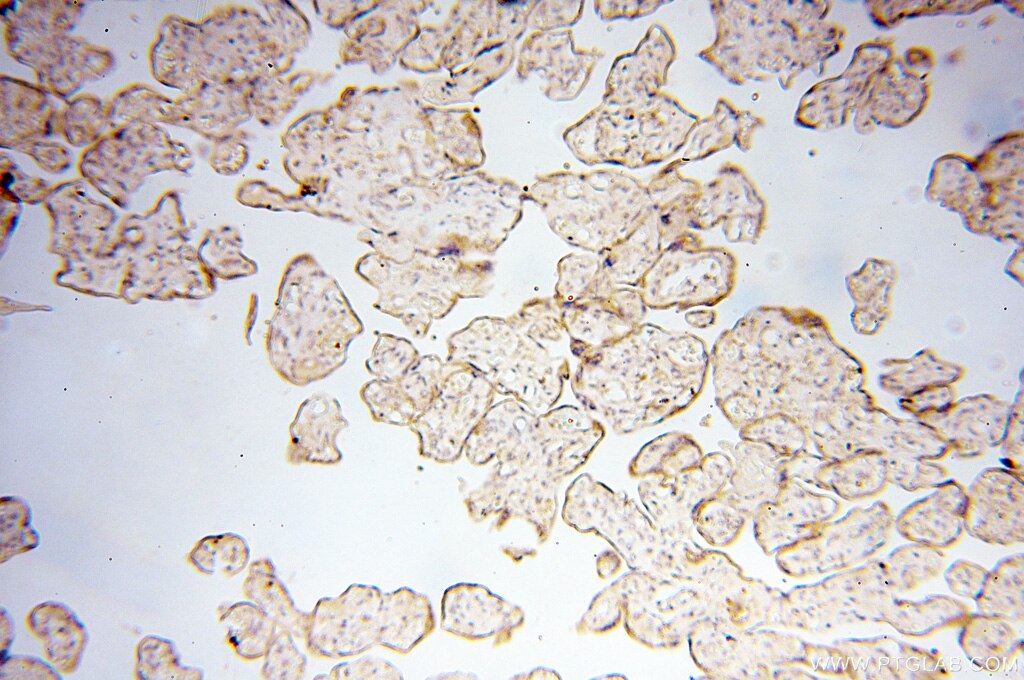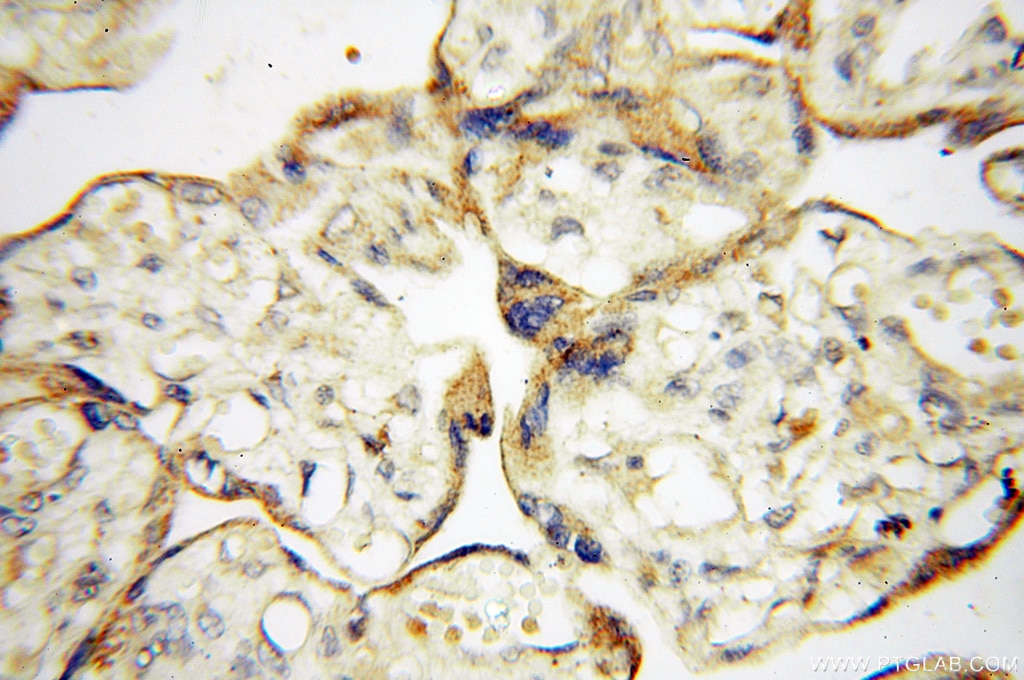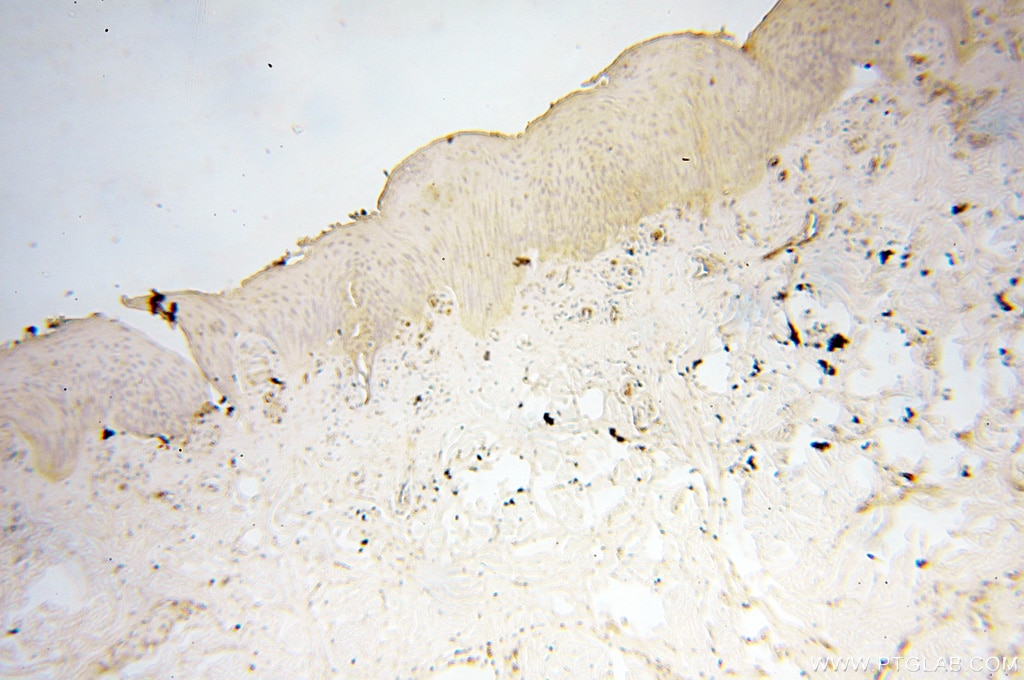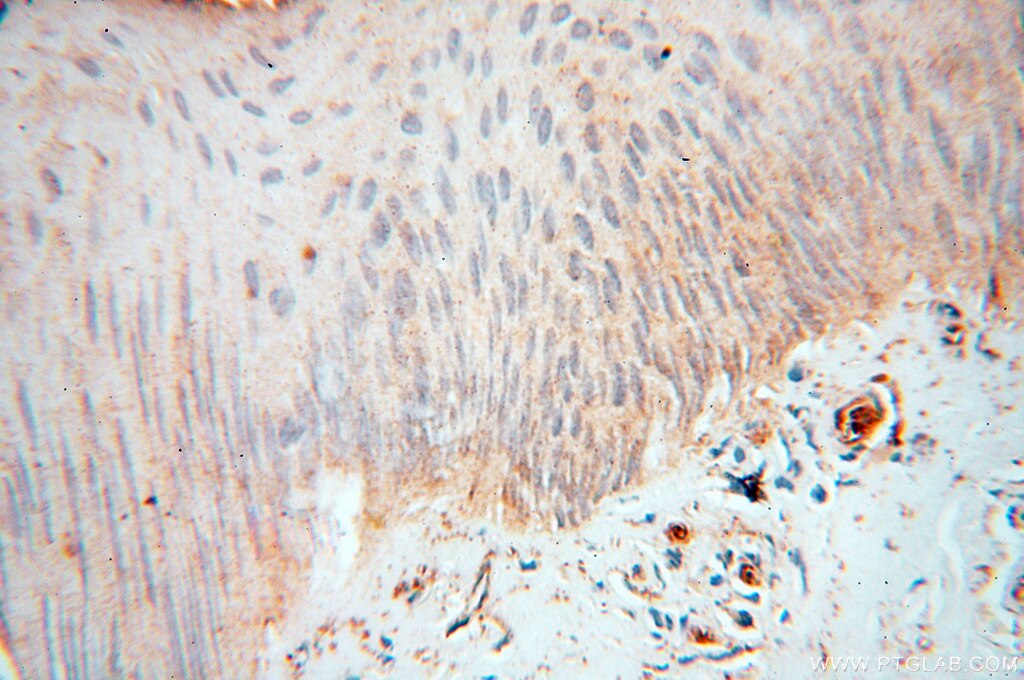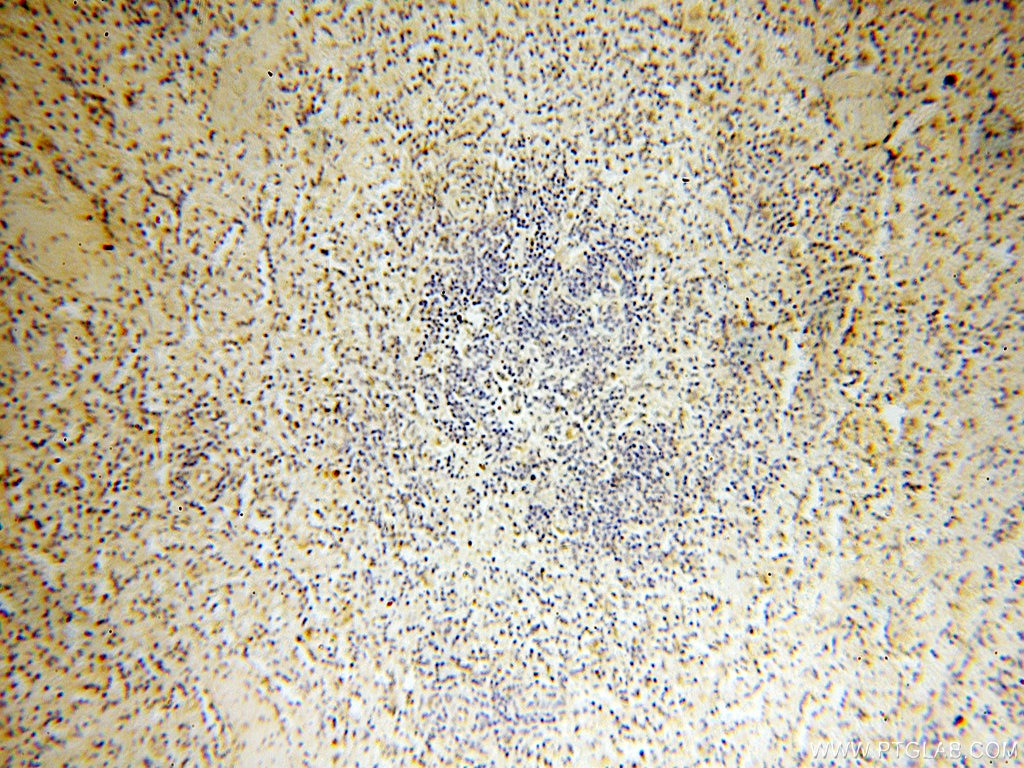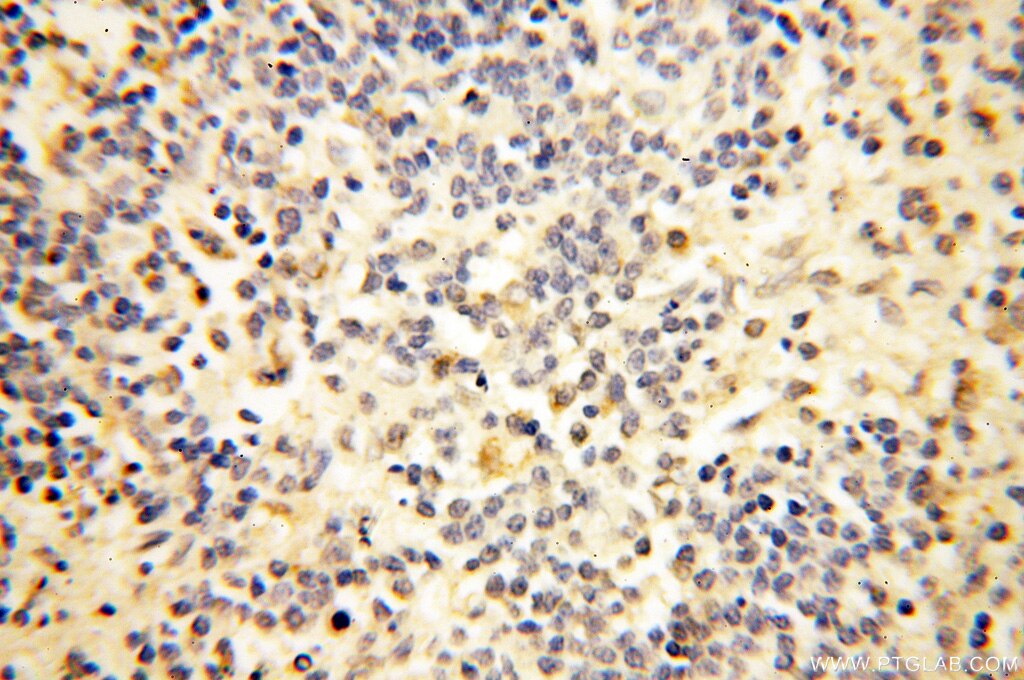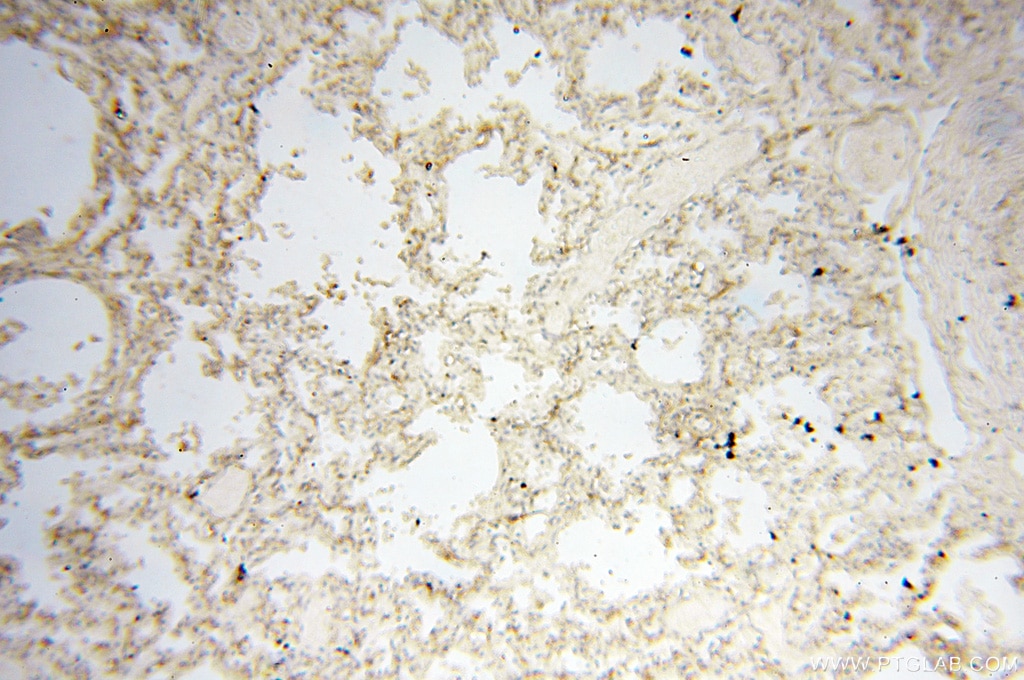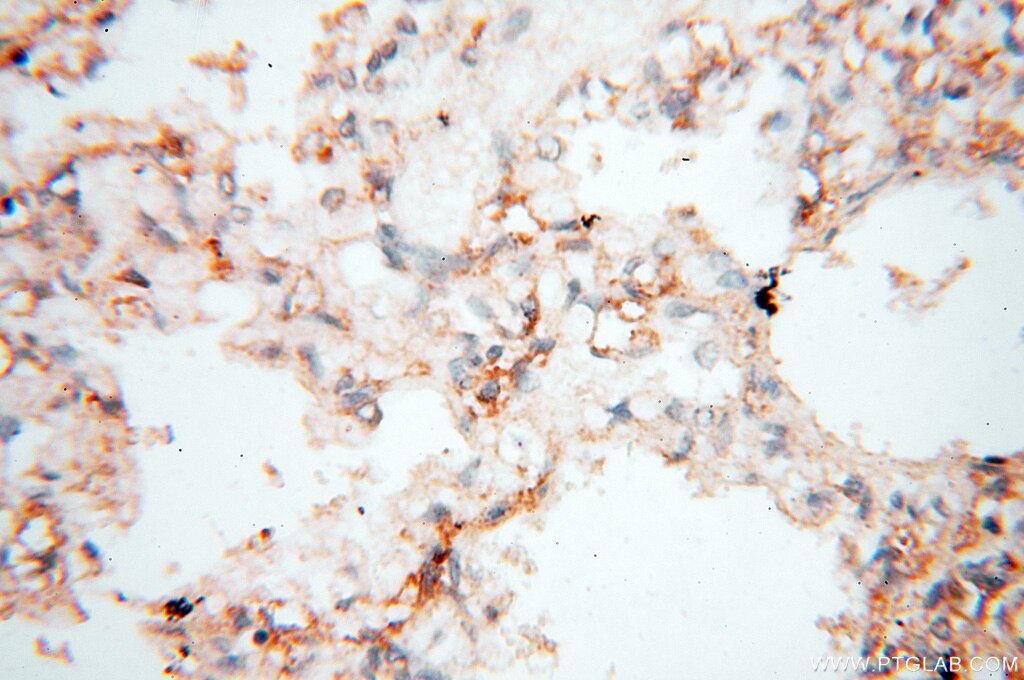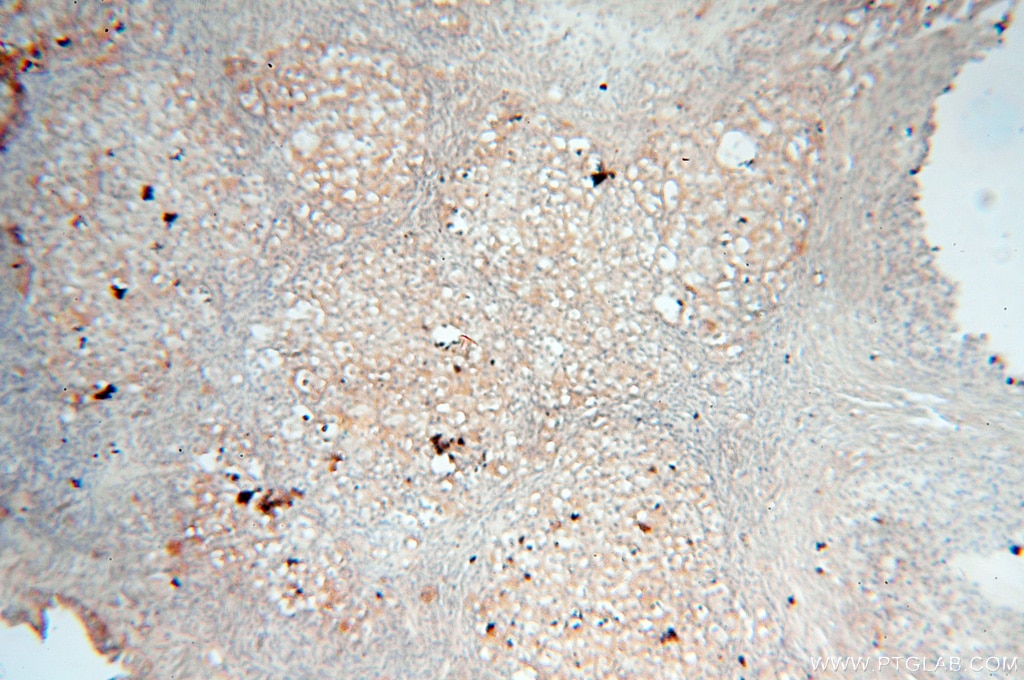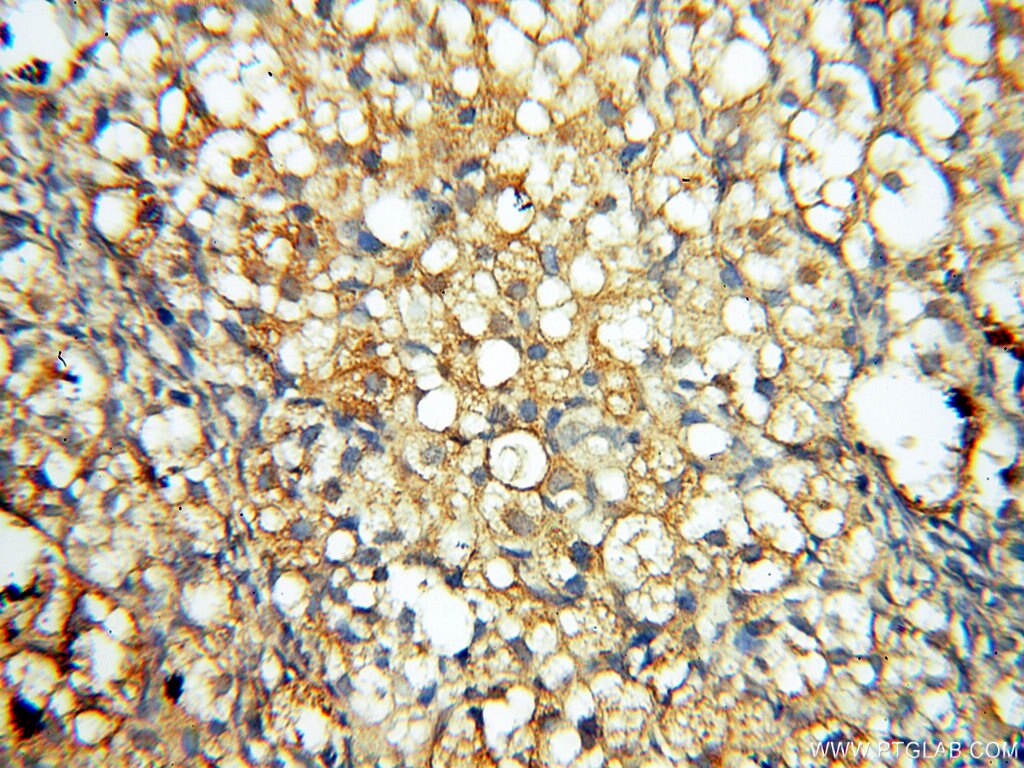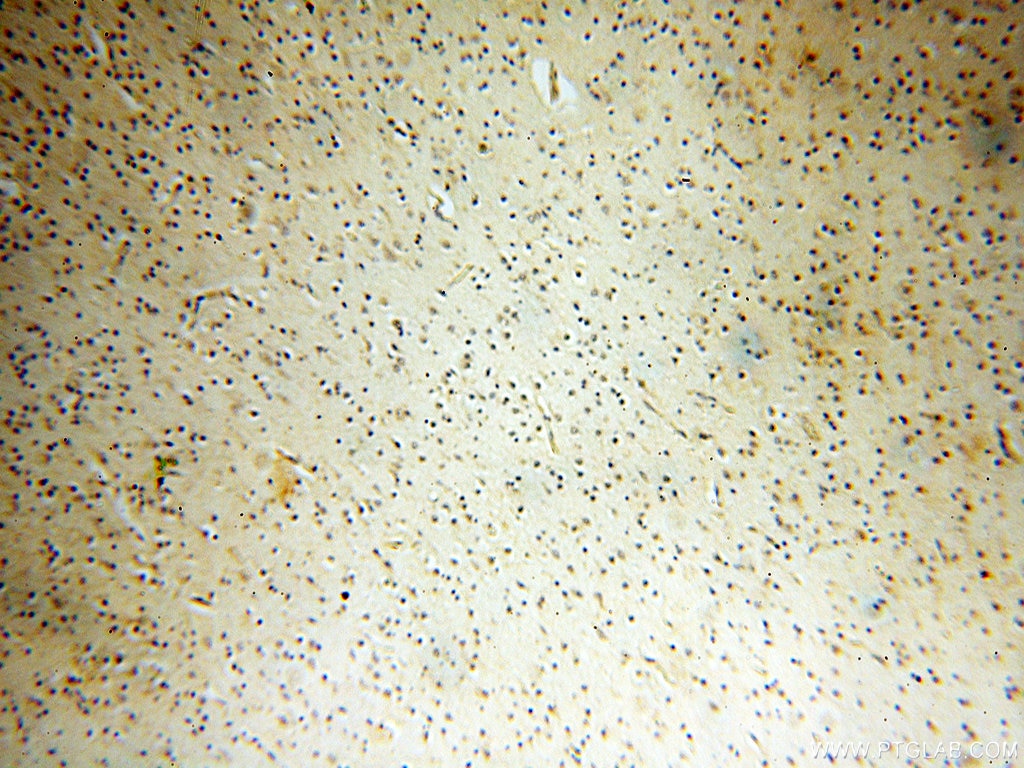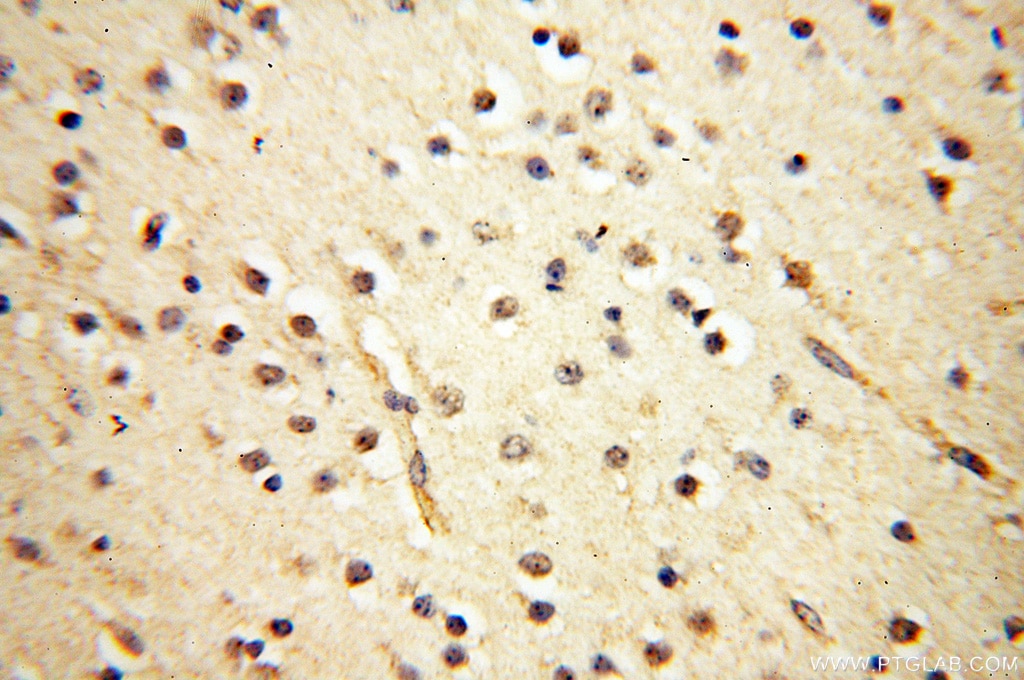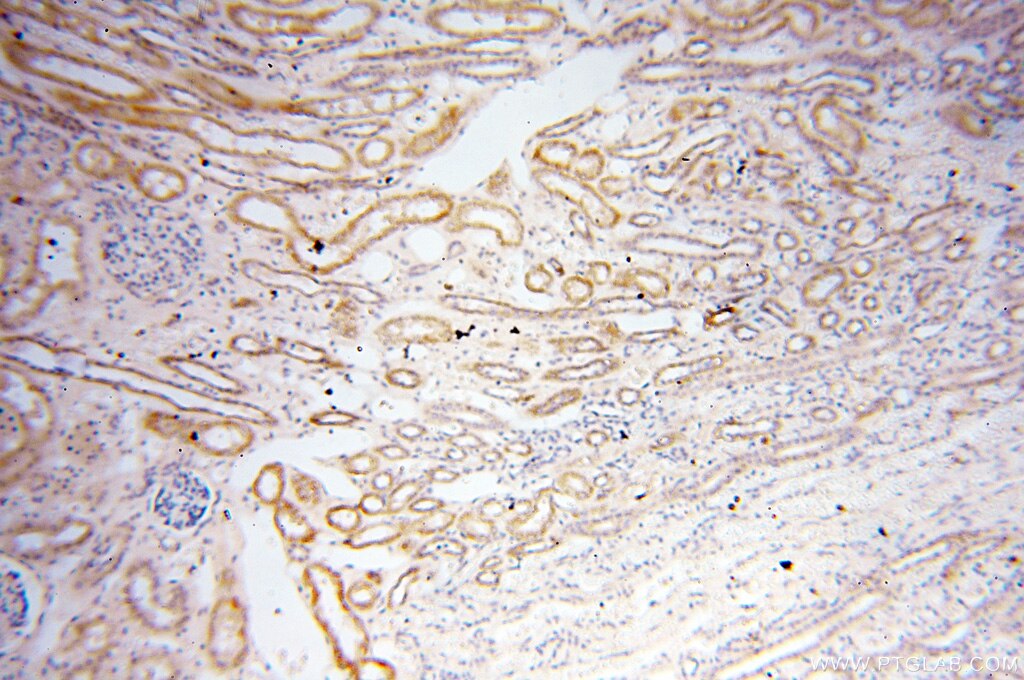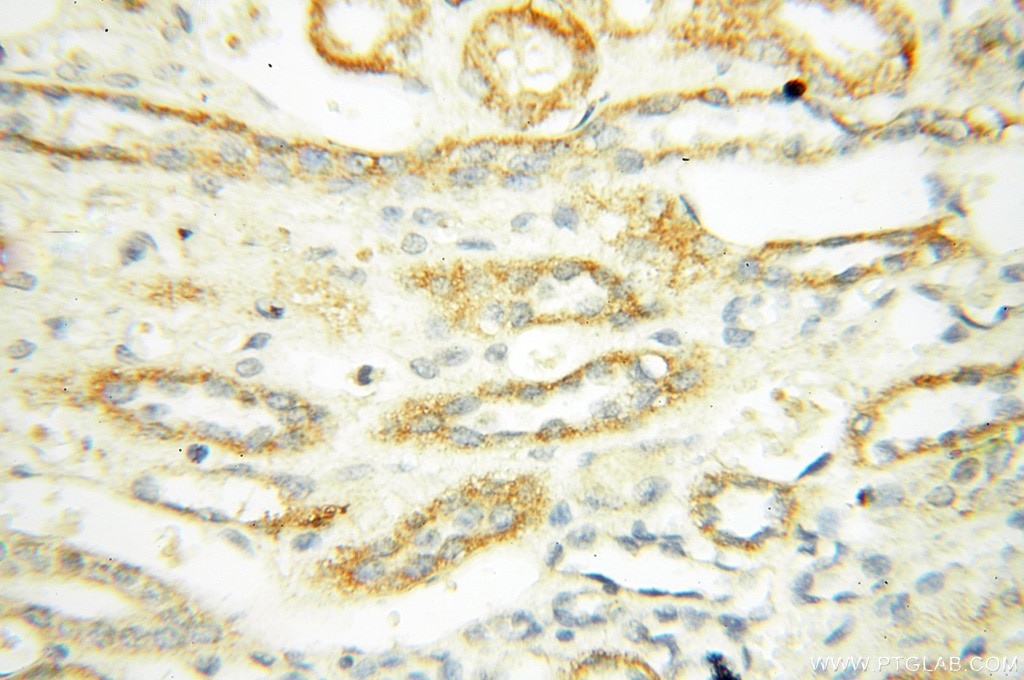- Featured Product
- KD/KO Validated
PTPN14 Polyclonal antibody
PTPN14 Polyclonal Antibody for IHC, WB, ELISA
Host / Isotype
Rabbit / IgG
Reactivity
human and More (1)
Applications
WB, IHC, ELISA
Conjugate
Unconjugated
Cat no : 18053-1-AP
Synonyms
Validation Data Gallery
Tested Applications
| Positive WB detected in | HeLa cells, K-562 cells |
| Positive IHC detected in | human placenta tissue, human brain tissue, human kidney tissue, human lung tissue, human ovary tissue, human skin tissue, human spleen tissue Note: suggested antigen retrieval with TE buffer pH 9.0; (*) Alternatively, antigen retrieval may be performed with citrate buffer pH 6.0 |
Recommended dilution
| Application | Dilution |
|---|---|
| Western Blot (WB) | WB : 1:500-1:2000 |
| Immunohistochemistry (IHC) | IHC : 1:20-1:200 |
| It is recommended that this reagent should be titrated in each testing system to obtain optimal results. | |
| Sample-dependent, Check data in validation data gallery. | |
Published Applications
| WB | See 1 publications below |
Product Information
18053-1-AP targets PTPN14 in WB, IHC, ELISA applications and shows reactivity with human samples.
| Tested Reactivity | human |
| Cited Reactivity | canine |
| Host / Isotype | Rabbit / IgG |
| Class | Polyclonal |
| Type | Antibody |
| Immunogen | PTPN14 fusion protein Ag12571 |
| Full Name | protein tyrosine phosphatase, non-receptor type 14 |
| Calculated Molecular Weight | 1187 aa, 135 kDa |
| Observed Molecular Weight | 150 kDa |
| GenBank Accession Number | BC101754 |
| Gene Symbol | PTPN14 |
| Gene ID (NCBI) | 5784 |
| RRID | AB_2284584 |
| Conjugate | Unconjugated |
| Form | Liquid |
| Purification Method | Antigen affinity purification |
| Storage Buffer | PBS with 0.02% sodium azide and 50% glycerol pH 7.3. |
| Storage Conditions | Store at -20°C. Stable for one year after shipment. Aliquoting is unnecessary for -20oC storage. 20ul sizes contain 0.1% BSA. |
Background Information
PTPN14 (tyrosine-protein phosphatase non-receptor type 14) is also named as PEZ and belongs to the protein-tyrosine phosphatase family and non-receptor class subfamily. It is a multi-domain protein expressed in breast, kidney, skeletal muscle, lung, placenta, and characterized by an N-terminal FERM domain and a C-terminal PTP domain with an intervening sequence containing an acidic region and a putative SH3 domain-binding sequence (PMID: 21701840). Defects in PTPN14 are a cause of choanal atresia and lymphedema (CHATLY).
Protocols
| Product Specific Protocols | |
|---|---|
| WB protocol for PTPN14 antibody 18053-1-AP | Download protocol |
| IHC protocol for PTPN14 antibody 18053-1-AP | Download protocol |
| Standard Protocols | |
|---|---|
| Click here to view our Standard Protocols |
Publications
| Species | Application | Title |
|---|---|---|
